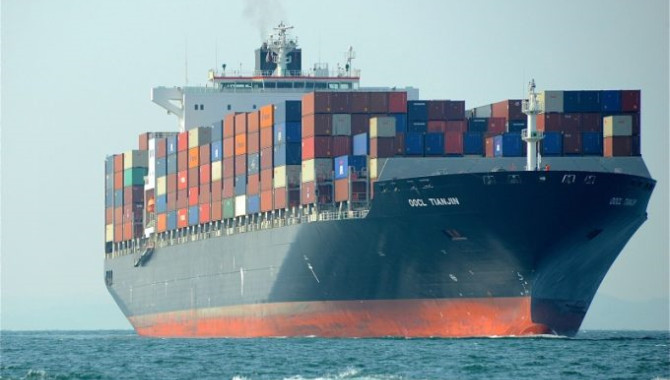
CHINA – UK – WORLDWIDE – Court cases which decide on matters of law with regard to incidents at sea or in port are often of much wider interest due to the points raised or clarified, and of which other vessel owners or operators might otherwise remain ignorant, placing them in a situation where they themselves may one day be adversely affected. Such a case was decided recently in the Court of Appeal.
On 17 May 2011, the CMA CGM Libra grounded whilst leaving the port of Xiamen in China. The vessel had left a buoyed fairway and ran aground on an uncharted shallow area. After an investigation, it was revealed that the vessel’s charts and passage plan had not been updated to reflect recent notices to mariners that had warned that many of the depths noted on charts were much shallower than recorded.
The original case (ALIZE 1954 (1) CMA CGM SA (2) Claimants - and - ALLIANZ ELEMENTAR VERSICHERUNGS AG AND OTHERS) was initially heard before Mr Justice Teare and decided in March 2019, and which we covered at the time, when he gave judgment for the Defendants (Cargo Interests) and dismissed the Owners’ claims for contribution in general average.
The Owners claimed the cause of the accident was the uncharted shoal, the Defence said the container ship was unseaworthy by reason of the fact that she had an inadequate passage plan, that that inadequacy was a cause of the casualty and that due diligence was not exercised to make the vessel seaworthy. For this reason it was claimed, and accepted by the Court, that Cargo Interests were not liable to contribute in General Average pursuant to the York Antwerp Rules.
The Court of Appeal unanimously dismissed the appeal stating Justice Teare had correctly applied long established principles of English law. Speaking at the appeal Lord Justice Males summarised the position about passage planning as follows:
”A properly prepared passage plan is an essential document which the vessel must carry at the beginning of any voyage. There is no reason why the absence of such a document should not render a vessel unseaworthy, just as in the case of any other essential document.”
With respect of the delegation of due diligence, the Court of Appeal found the carrier/navigator distinction to be misconceived; Lord Justice Males saying, ‘If the vessel is not seaworthy, for whatever reason, there is a danger that the cargo will not be carried safely to its destination’. The true distinction is the division of risk before and at the commencement of the voyage (where the risk is with the owners) and then during the voyage (where the risk is generally with the charterers). The duty cannot be delegated before and at the commencement of the voyage.
The upshot then is that there is now confirmation of a binding English Law precedent that passage planning can affect a vessel’s seaworthiness. It creates more certainty about what exactly can render a vessel unseaworthy and the decision also reaffirms the non-delegable nature of the duty of seaworthiness at the commencement of a voyage.
We are grateful to Robert Shearer, Claims Executive at the Americas Syndicate of the Shipowners’ Club for the analysis of this case. The advice to Club members remains as ever, that they should observe the *McFadden Test i.e. would a prudent owner have required the relevant defect, had they known of it, to be made good before sending their ship to sea? In other words, would you allow a ship to sail if you knew it had a defective passage plan?
*McFadden v Blue Star Line, [(1905) 1 KB 697
Source:handyshippingguide
The opinions expressed herein are the author's and not necessarily those of The OLO News.
Quality Companies